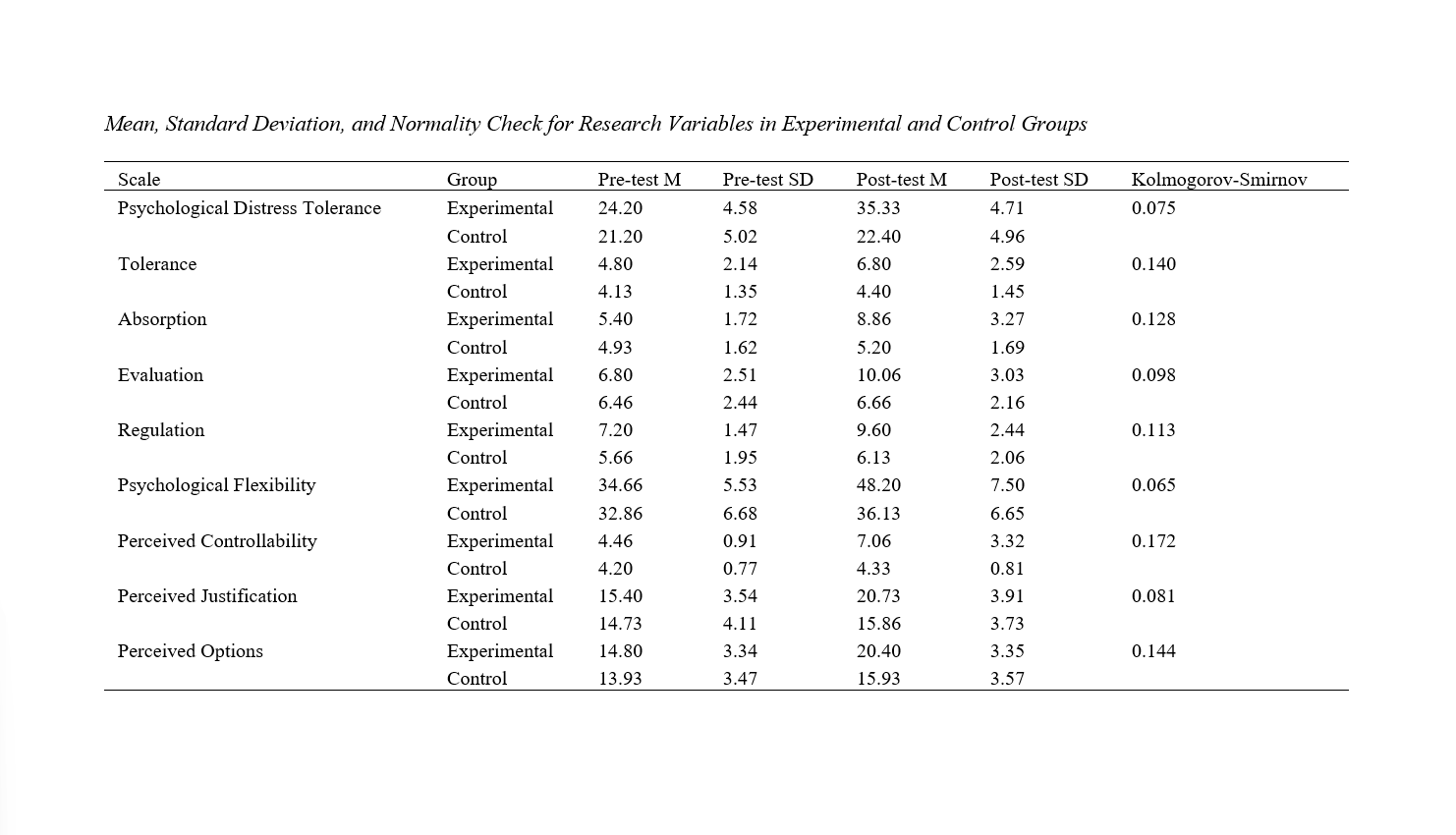The Effectiveness of Forgiveness Therapy on Psychological Distress and Psychological Flexibility in Women with Marital Conflicts
Keywords:
Forgiveness Therapy, Psychological Distress, Psychological FlexibilityAbstract
Objective: The present study aimed to investigate the effectiveness of forgiveness therapy on psychological distress and psychological flexibility in women with marital conflicts.
Methods: The research method was quasi-experimental, with a pre-test-post-test design and a control group. The statistical population included all women with marital conflicts who referred to health centers in District 3 of Tehran in 2022. The sample consisted of 30 women who scored lower in psychological flexibility and distress tolerance. They were selected through non-random voluntary sampling and were randomly assigned to experimental and control groups. Data were collected using the Distress Tolerance Scale by Simons and Gaher (2005) and the Psychological Flexibility Questionnaire by Dennis and Vander Wal (2010) in both pre-test and post-test stages. The session content was prepared according to the forgiveness therapy model by Enright and Fitzgibbons (2015). Data were analyzed using descriptive statistics and covariance analysis.
Findings: The results of the covariance analysis indicated that the mean scores of psychological distress and psychological flexibility and their components in the experimental group significantly decreased compared to the control group (P = 0.05).
Conclusion: Therefore, forgiveness therapy was effective in reducing psychological distress and enhancing psychological flexibility in women with marital conflicts.
Downloads

Downloads
Additional Files
Published
Issue
Section
License

This work is licensed under a Creative Commons Attribution-NonCommercial 4.0 International License.




















